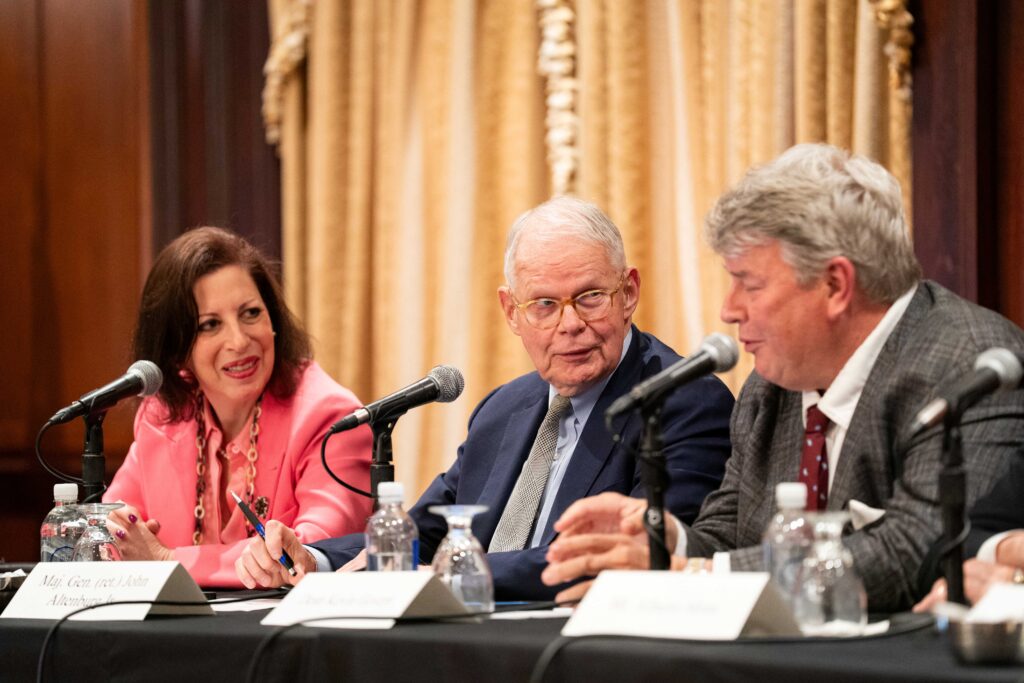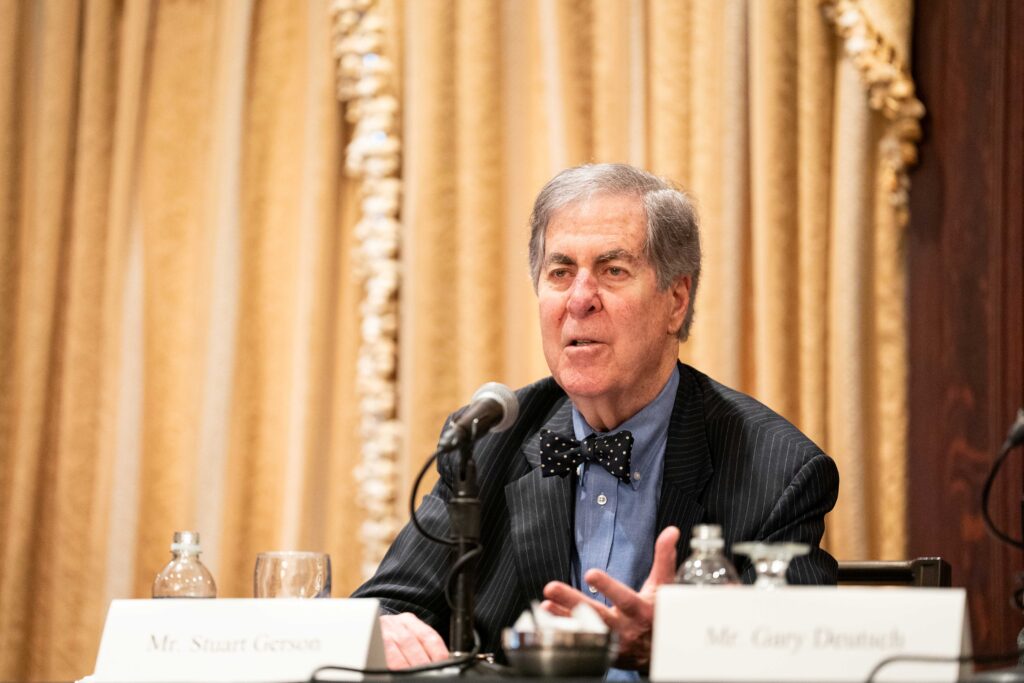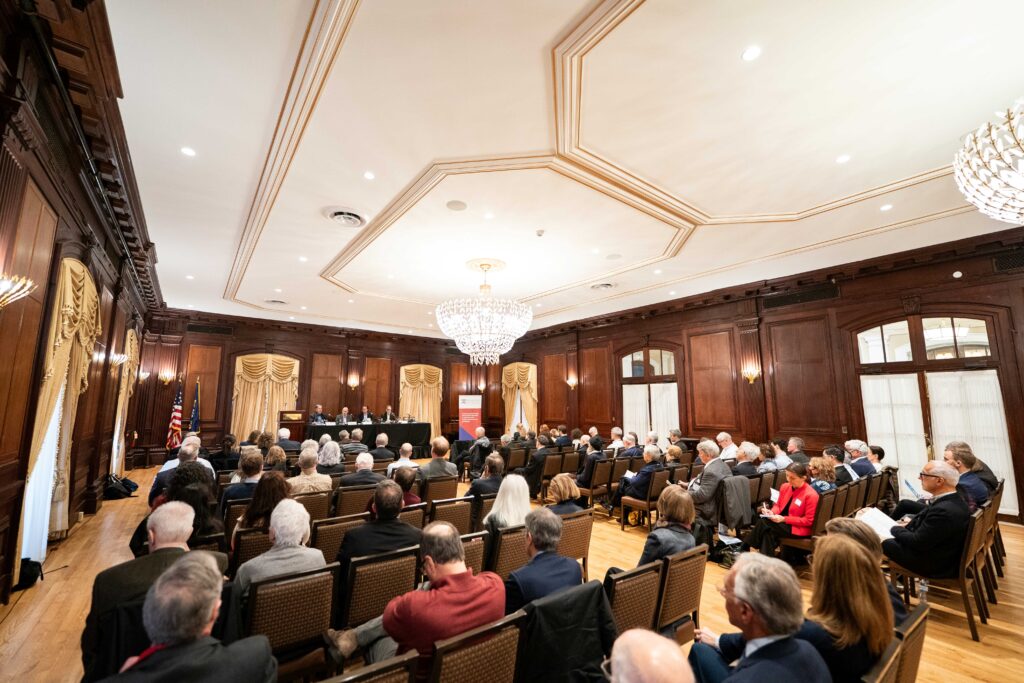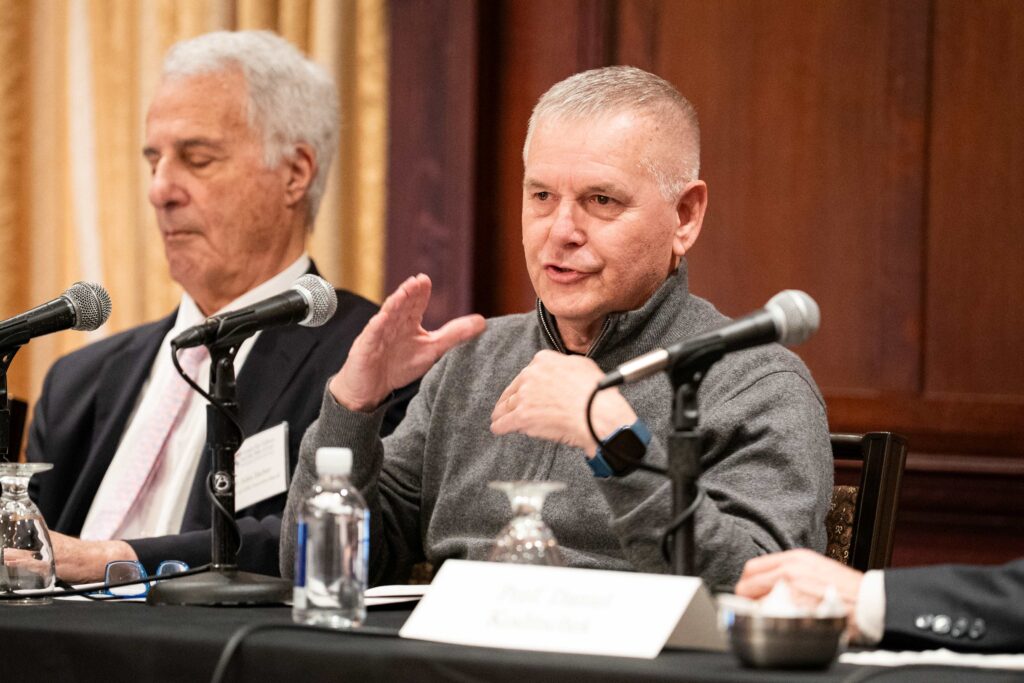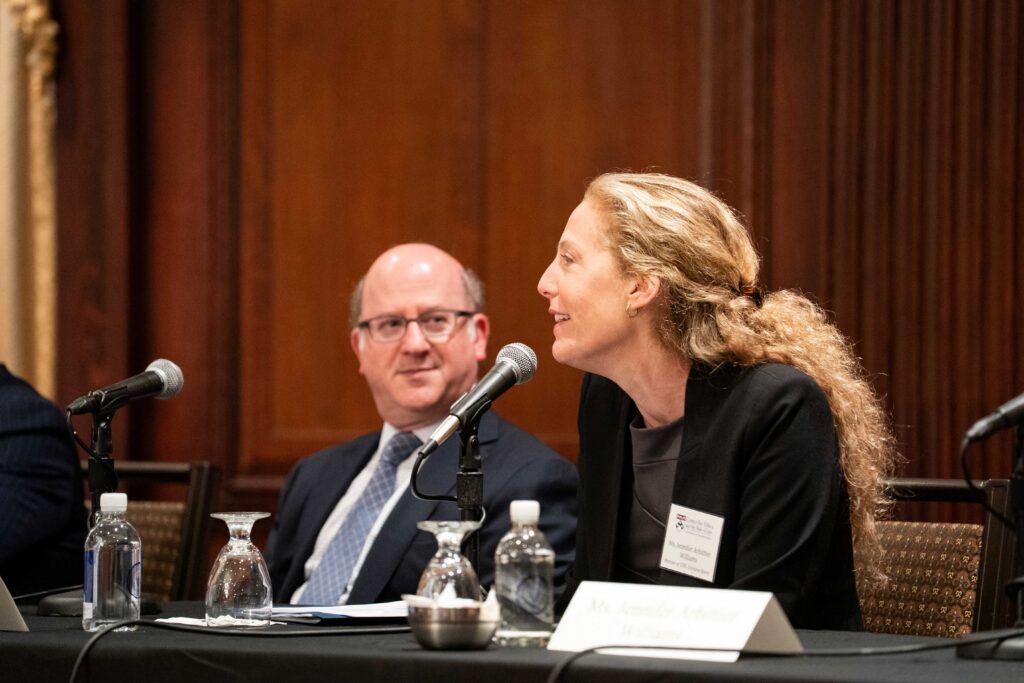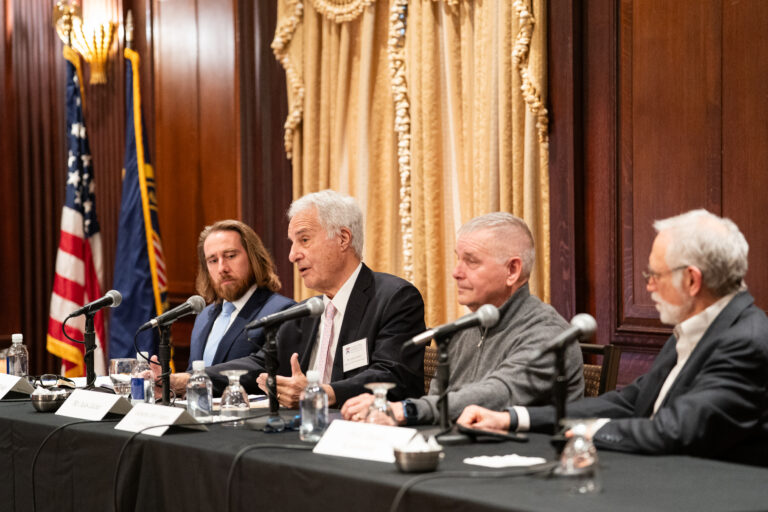Leading national security and legal experts address the ongoing attacks on the judiciary, the domestic deployment of U.S. troops, AI capabilities in the military, and malign foreign influence campaigns, among other topics
The Center for Ethics and the Rule of Law (CERL) at the University of Pennsylvania held a public symposium on “Threats to the Rule of Law and National Security” on Friday, April 11, 2025, at the Union League of Philadelphia. The series of panels, featuring members of CERL’s Affiliated Faculty, Executive Board, and Advisory Council, addressed a range of challenges to democratic governance and national security law in today’s political and technological landscape.
“The rule of law in the United States is under greater strain than at any time in the history of the country,” said Claire Finkelstein, faculty director of CERL. “Attacks on the central nonpartisan institutions and professions that maintain U.S. democracy, such as judges, lawyers, journalists, civil servants, ethics watchdogs such as inspectors general, the military and military lawyers, higher education, and our overseas allies and free trade partners, are reshaping the foundations of democratic governance and the rule of law in the United States. At the same time, technological advancements are outpacing the ethical and legal frameworks developed thus far to govern their use, and our democracy is now more vulnerable to foreign influence than at any time in the past. In this symposium, we brought together CERL’s experts and affiliates in national security, the U.S. military, the legal profession, government ethics, and advanced technologies to discuss these various challenges to democratic governance, and to consider what can be done from a nonpartisan standpoint to uphold rule of law values.”
The first panel focused on the attacks mounted by President Donald Trump on institutions and individuals in the legal profession, including on courts and judges, Department of Justice attorneys, those involved in Trump’s impeachment cases, and big law. Penn Law professor Mitchell Berman moderated a conversation among three members of CERL’s Executive Board: Gary Deutsch, managing chief counsel for a national bank; Stuart Gerson, a long-time trial and appellate lawyer who served previously as acting attorney general of the United States; and Mark Zaid, a Washington, D.C. based attorney who specializes in matters relating to national security, international law, foreign sovereign and diplomatic immunity, and the Freedom of Information/Privacy Acts.
“The authority of government has been ceded to lawyers who misunderstand who their client is. Both the current attorney general and the utterly unqualified interim and nominee to be U.S. attorney of the District of Columbia have in their own testimony announced their fealty is to the president as an individual, not to the people,” said Mr. Gerson.
The second panel addressed use of the military since President Trump took office and declared a state of emergency on the southern border, deploying USNORTHCOM to support U.S. Customs and Border Protection. Panelists discussed the possible erosion of traditional restrictions on use of the military, like the 1878 Posse Comitatus Act, and the evolving relationship between the military and civilian law enforcement. On the panel were CERL affiliates Major General (ret.) John Altenburg Jr., of counsel in the D.C. office of Greenberg Traurig and national security professor at GW Law; Kevin Govern, associate dean for academic affairs and a professor of law at Ave Maria School of Law; Alberto Mora, former general counsel of the Navy and former executive director of the American Bar Association Rule of Law Initiative; Brig. Gen. (ret.) Stephen N. Xenakis, M.D., a psychiatrist and retired Army medical corps officer; Marcos Gonzalez Soler, executive director of CERL and former deputy secretary for public safety for Governor Hochul of New York; and Professor Finkelstein as moderator.
“The culture of the JAG Corps, as they have developed since 1970 especially, will be able to withstand that kind of pressure,” said General Altenburg in discussing the firings of high-ranking officials in the military. “I firmly believe there are enough people that will find ways to see that we still uphold the rule of law, and we still do this right.”
The third panel featured a conversation on the legal and technical considerations of artificial intelligence on the battlefield within and outside of the nuclear context, as well as on ambiguities in decision making at the tactical level. Daniel Koditschek, professor of engineering at Penn, moderated a conversation among CERL affiliates General (ret.) James Cartwright, who served as commander, U.S. Strategic Command, before being nominated and appointed as the eighth vice chairman of the Joint Chiefs of Staff; Benjamin Farley, visiting fellow at the University of Minnesota’s Human Rights Center and employee of the federal government; and Jules Zacher, a trial attorney and chair of the board of Council for a Livable World.
“International humanitarian law is filled with underspecified rules, particularly when it comes to targeting,” said Mr. Farley, speaking in his personal capacity. “We have rules about who can or who cannot be killed on the battlefield that make sense in an abstract or axiomatic way, but when they are applied to complex situations on the battlefield, the answers themselves become very complicated, and there appears to be a great deal of discretionary space for interpretation by the individuals that would program these devices and deploy them in the field.”
The final panel addressed threats to U.S. democracy posed by malign foreign interference. Speakers discussed environments that breed or enable foreign actors to meddle with U.S. public discourse or policies, tools such as Section 702 of the Foreign Intelligence Surveillance Act (FISA) to identify subversive efforts by foreign actors, and governmental instruments like the Foreign Agents Registration Act (FARA) to counter foreign campaigns in the United States. Panelists were CERL affiliates Robert Kelner, partner at Covington & Burling and expert in FARA; Sean Carter, partner at Cozen O’Connor engaged in cases involving claims under the Foreign Sovereign Immunities Act and Anti-Terrorism Act; George Croner, non-resident senior fellow in the National Security Program at the Foreign Policy Research Institute; and Jennifer Arbittier Williams, former U.S. attorney in Philadelphia, adjunct professor at Penn Law, and former national security prosecutor in the DOJ, as moderator.
“When our own democracy is not healthy, we become vulnerable to foreign influence in a way that laws will not be the solution to,” said Mr. Kelner. “When our democracy is not healthy, we become ineffectual at influencing other companies through public diplomacy. The more fundamental problem is what is happening in our own politics.”
